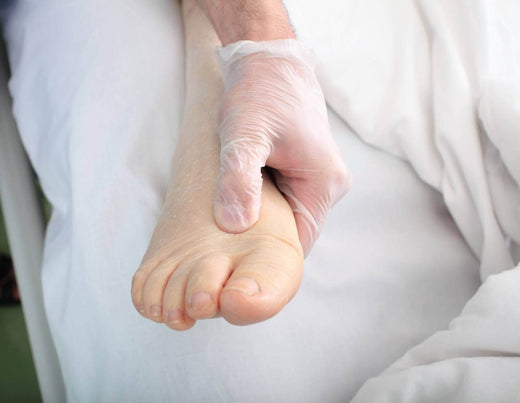When swelling caused by excess fluid gets trapped in the body’s tissues, it’s referred to as edema. While mild cases of edema may resolve on their own, chronic or recurrent swelling can interfere with daily activities and overall comfort. There are several common causes, and adopting long-term management strategies can help prevent or minimize edema.
What to Know About Edema
What Causes Edema?
Edema occurs when fluid builds up in areas of the body—most commonly in the legs, hands, feet, and arms—as gravity pulls the fluid to those areas. The condition can range from mild and temporary to more severe and persistent. Edema can be significant enough to impair mobility, cause damage to the skin, and affect daily activities. Staying in one position for too long can impair circulation and lead to fluid retention, especially if there are underlying health conditions. Heart, kidney, or liver issues can contribute to fluid retention, and food intake plays a role, too; high sodium intake can cause the body to retain water. Certain medications, including some used to manage blood pressure or pain, can lead to swelling as a side effect. Sprains, fractures, or infections may cause localized swelling, which is normal and necessary for healing, but it sometimes lingers beyond its usefulness or becomes extreme.
How to Prevent Edema
Preventing edema depends on the cause, but it often involves making lifestyle adjustments that promote healthy circulation and reduce fluid retention.
- Stay Active: Regular physical activity is one of the most effective ways to improve circulation and prevent fluid buildup. Walking, swimming, and other low-impact exercises can be particularly beneficial for those prone to swelling.
- Elevate Your Limbs: Raising your legs above heart level for short periods throughout the day can help with edema prevention, especially if you spend long hours sitting or standing.
- Wear Compression Garments: Compression socks or stockings can improve circulation and prevent fluid from pooling in the lower extremities.
- Monitor Sodium Intake: Eating a balanced diet with limited sodium can help regulate fluid levels in the body. Focus on fresh, whole foods and avoid overly processed items.
- Incorporate Wellness Tools: Your daily routine can complement preventive measures using tools like Juvent’s Micro-Impact Platform. This patented device has been used by individuals seeking to support overall comfort and mobility in as little as 20 minutes a day with low-impact frequencies. Customers have shared positive feedback about their experiences using the platform as part of a broader wellness plan.
How Do You Treat Edema?
If you’re already experiencing edema, addressing the root cause is key to effective treatment. Depending on the severity and underlying factors, treatment varies and should include guidance from your medical provider.
- Lifestyle Adjustments: Elevating the affected area, reducing sodium intake, and staying active are foundational steps in managing existing swelling.
- Medical Interventions: For more severe cases, healthcare providers may recommend medications like diuretics or treatments targeting the underlying condition causing the edema.
- Therapeutic Tools: Devices like Juvent’s Micro-Impact Platform can play a role in your recovery plan. Some edema sufferers have found it beneficial in promoting comfort and mobility when dealing with swelling and stiffness. Compression pumps are another tool some individuals use for managing long-term edema, assuming their medical provider deems it safe.
- Regular Monitoring: For chronic cases, keeping track of swelling patterns and communicating with a healthcare provider ensures early intervention if symptoms worsen.
Long-Term Edema Management
Managing edema is often an ongoing process, particularly for those with chronic conditions or jobs that require extended periods of sitting or standing. Creating a sustainable routine that includes regular movement, a balanced diet, and supportive tools can significantly reduce the impact of edema on daily life.
Taking Your Life Back From Edema
Edema doesn’t have to disrupt your life. With proactive prevention, thoughtful treatment, and non-disruptive tools like Juvent’s Micro-Impact Platform, you can effectively manage swelling and promote long-term comfort. Juvent’s Micro-Impact Platform is a versatile device designed to support overall wellness. Alongside your healthcare provider, you can create the best plan for edema management that aligns with your health goals and conditions. By taking control of your edema management strategy, you can improve your quality of life and stay active for years to come.
FDA Disclosure
In the US, the Juvent device is considered investigational for the treatment of osteoporosis or improvement/maintenance of bone mineral density and our claims have not been reviewed or cleared by the FDA to treat any disease or condition. (2) Calculated over the 20+ year expected life of a Juvent. The JUVENT® Micro-Impact Platform® is Registered as a Class I medical device for exercise and rehabilitation. JUVENT products are covered by the following issued patents, pending patents and their foreign equivalents: 6,843,776 6,884,2277,094211 7,207,954 7,207,955 7,985,191 8,114,036 11/369,611 11/486,538. Juvent, Dynamic Motion Therapy, Micro-Impact Platform, and the symbol are Registered trademarks of Regenerative Technologies Corporation.


Share:
Ergonomic Tips and Tricks For Sore Joints in the Workplace
Exploring the Benefits of Yoga, Stretching, and Meditation